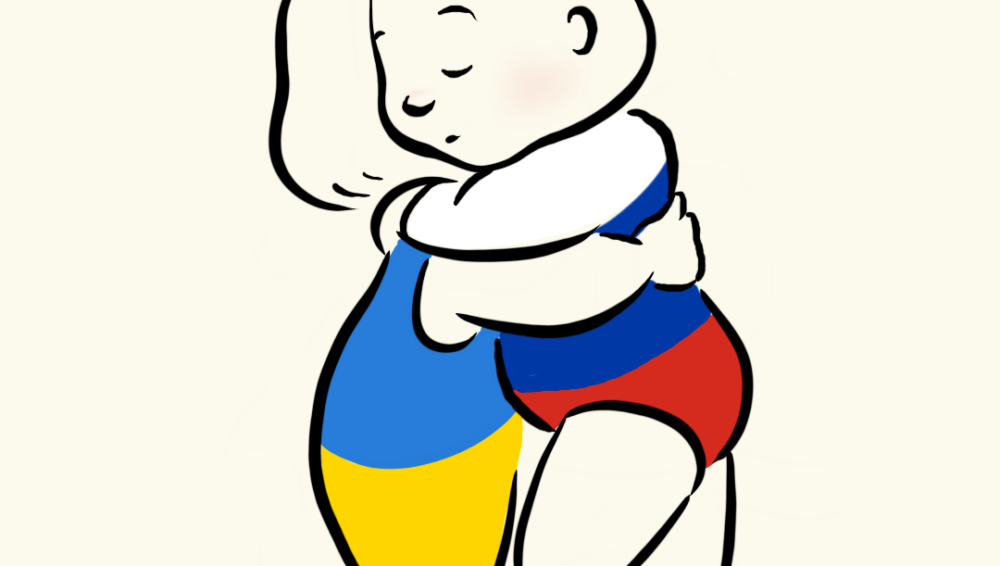Let’s pray for peace!
Insights

Ukrainians and Russian adults fight. Let’s hope for peace so that the children can soon reunite with their fathers and later with their friends next door — otherwise they may suffer for life.
Children need their mothers, fathers, and family. If the family suddenly breaks apart due to internal conflicts or external events, the consequences for a young child can be tragic.
Children are often too young to understand what is happening around them. If things get bad — say there is war, and the father has to go, and they have to flee with their mother — the children can feel neglected and develop a trauma.
Effects of neglect and trauma
Young children who experience physical, cognitive, or emotional neglect, because one of the people they have been most attached to, suddenly leaves them behind, often face great anxiety.
As a result, their body produces stress hormones. If this happens a lot, these hormones become toxic for their developing brain, which then later can repress emotional and cognitive well-being for life. The result is later often called childhood trauma.
But it’s not only the stress that’s the problem. On top of that, they can also develop guilt for the situation.
Why do children feel guilt for our problems?
Parents form a big part of a child’s personality during the time when the child completely depends on their care. This happens because children perceive their parents as flawless, almighty, and endlessly wise.
Children not only think that we are infallible, but they also trust that whatever we do, we do out of unconditional love for them. Consequently, they may think that when a conflict arises, it can’t be our fault, but it must be theirs.
As a result, children start to develop guilt and shame for problems that are entirely ours.
How can we help children who experience trauma?
The most important thing parents can do is to stand by their children and give them peace of mind. So, if the family breaks apart, the child needs at least one person who is always there and be that safe-heaven they can always turn to. If they do have that one person, they can go through a lot of trouble and still develop the trusting bond that is so important to form healthy human relationships later in life.
Just like Bronfenbrenner, a famous psychologist, once said: “every child needs at least one adult who is irrationally crazy about him or her.”
If you want to do something to help, give a donation here
Sources:
- The Hoffmann Process, Sprouts
- Brofnenbrennder, Sprouts
- Marinus H. van IJzendoorn, M. P. C. M. L. & Juffer, F., 2008. IQ of Children Growing Up in Children’s Homes: A Meta-Analysis on IQ Delays in Orphanages. Merrill-Palmer Quarterly, Volume 54, pp. 341-366.
- Cognitive recovery in socially deprived young children: the Bucharest Early Intervention Project



